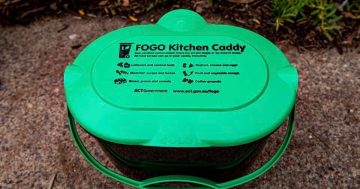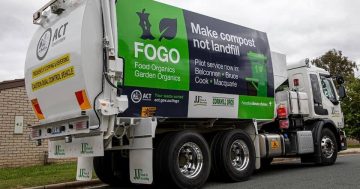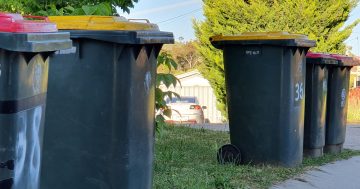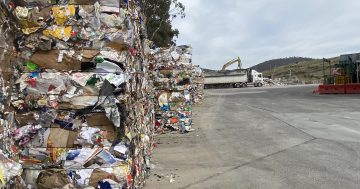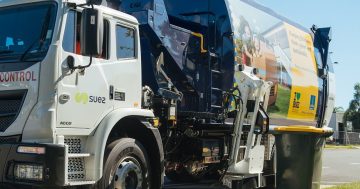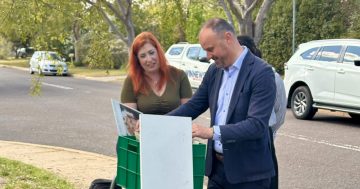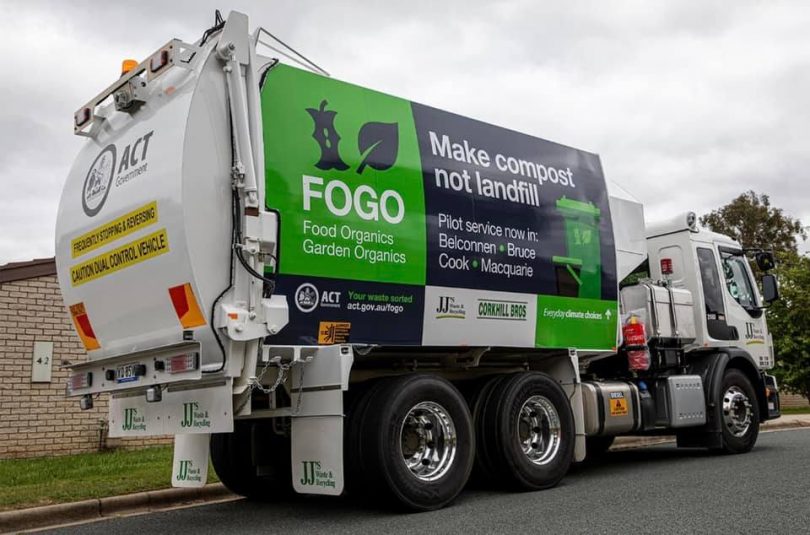
A Food Organics and Garden Organics (FOGO) trial is underway in Belconnen, but some residents say they have been left behind. Photo: Chris Steel Facebook.
It was much anticipated by many, but the food organics and garden organics (FOGO) trial has hit a bump in the road for many Belconnen residents who say there are elements of it that haven’t been well thought out.
In particular, the reduced usual rubbish collection is causing issues for larger families, people with disabilities or medical needs, and households with young children who all produce more waste than the ‘average’ household.
The FOGO trial, which began in November 2021, is currently taking place in Belconnen, Bruce, Macquarie and Cook, and has been welcomed by many, including environmental groups.
The ACT Government expects that when FOGO is implemented citywide, waste emissions will be reduced by up to 30 per cent.
Food scraps and garden waste go into the FOGO bin – which is collected weekly – while the normal rubbish bin is collected fortnightly.
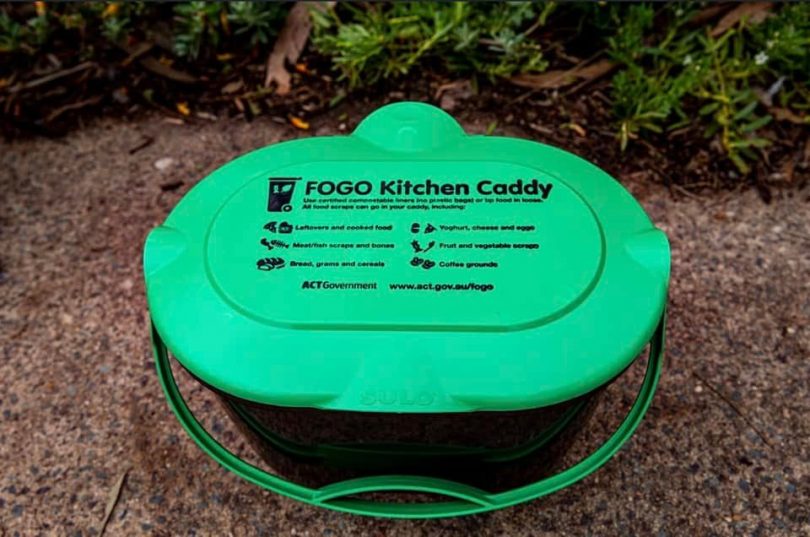
Households are provided with a free FOGO Kitchen Caddy as part of the pilot. Photo: Chris Steel Facebook.
However, it’s not all bad news with some residents thrilled with the trial.
A resident who wished to remain anonymous said her household had “previously barely managed to squeeze all [their] rubbish in the red bin each week and there was certainly no space left over for a spring clean throw out”.
“Now the red bin is only half to three-quarters full each fortnight.”
But several people who have spoken to Region Media say it’s the fortnightly bin collection that is causing the problem.
One resident, who also wished to remain anonymous, said her family is only able to produce about “half of a FOGO bag per week, which is not sufficient to move to fortnightly [rubbish collection]”.
The household already composts so most of their organic waste goes into that, she explained.
“Plastics and packaging is a real issue, but we also have medical waste.”
“I couldn’t imagine how impossible this would be if we were still a family of four.”
Another resident shared similar concerns. Sally (last name withheld) said her family also composts, and has done for nine years.
Now she feels as though they are “swimming in the trash each week”.
“It’s embarrassing keeping rubbish in our home as the bins are full and we don’t want birds and other animals getting into the bags and making a mess,” explained Sally.
The ACT Government is encouraging people to apply for an additional bin or upgraded rubbish or recycling bin, but residents say this simply isn’t fair because it comes at a cost to them.
“It’s unclear to me why the burden always has to fall on the household,” said one user.
For people living with a disability – many who say they produce additional medical waste – these problems are exacerbated.
A spokesperson for the ACT Government said it’s recently been made aware of these concerns and is “reaching out to disability groups to discuss specific needs of households in this situation”.
“There may be a number of options available which are tailored to the individual household’s needs,” said the spokesperson.
“For example, people with disability may be eligible for sanitary and medical bins, and bespoke services to collect waste under the NDIS [National Disability Insurance Scheme].
“ACT Residents who live on a property where no-one is physically able to take their bins to the kerbside can also get assistance from the ACT Government.
“The government is open to making changes and adjustments as needed during the trial.”
It is expected the FOGO pilot will be rolled out to more Canberra suburbs in 2023.












